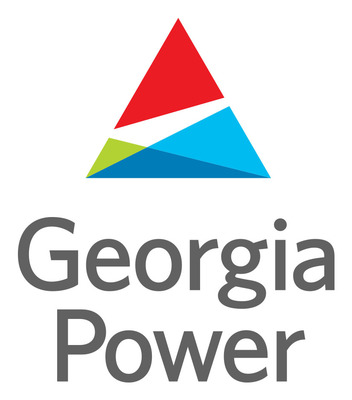Georgia Power determines locations for 500 MW of new battery energy storage systems approved in 2023 IRP Update
Rhea-AI Summary
Georgia Power has identified locations for 500 MW of new battery energy storage systems (BESS) approved in the 2023 Integrated Resource Plan Update. The portfolio includes four projects: Robins BESS (128 MW), Moody BESS (49.5 MW), Hammond BESS (57.5 MW), and McGrau Ford Site Phase II BESS (265 MW). These 4-hour duration BESS will serve as dispatchable capacity resources, providing reliable and economical electricity for winter 2026/2027.
The BESS projects leverage existing infrastructure, reducing deployment time and costs. They qualify for Inflation Reduction Act tax incentives and offer energy arbitrage benefits. Georgia Power is also nearing completion of the 65 MW Mossy Branch Battery Facility and developing the 265 MW McGrau Ford Phase I BESS project.
Positive
- 500 MW of new battery energy storage systems (BESS) identified and planned
- BESS projects leverage existing infrastructure, reducing deployment time and costs
- Projects qualify for Inflation Reduction Act tax incentives, potentially lowering customer costs
- Energy arbitrage benefits expected to optimize energy savings and reduce customer costs
- Additional 65 MW Mossy Branch Battery Facility nearing completion
Negative
- None.
News Market Reaction – SO
On the day this news was published, SO gained 0.06%, reflecting a mild positive market reaction.
Data tracked by StockTitan Argus on the day of publication.
New resources will help company meet the energy needs of a growing
Each of the proposed resources will consist of 4-hour duration BESS. Once developed, these projects will serve as dispatchable capacity resources that will provide customers with a reliable and economical source of electricity for the winter of 2026/2027. These resources will add to Georgia Power's diverse generation portfolio, helping to ensure the company has the mix of technologies necessary to provide clean, safe, reliable and affordable electric service for all customers during all hours.
BESS support the reliability and resilience of the electric system, while also enhancing the value of intermittent renewable generation like solar. BESS can improve the efficiency of renewable energy by storing excess energy produced during periods when the demand for electricity is lower, for use when the demand is higher, such as on cold winter mornings. Because battery storage can provide stored energy to the grid over several hours, BESS resources can also rapidly respond to other system events to increase the reliability of the electric system.
The new BESS facilities planned and under development are:
- Robins BESS (
Bibb County , 128 MW). This strategic site is co-located with the existing solar facility adjacent to the Robins Air Force Base and allows Georgia Power to leverage existing infrastructure, thereby eliminating the need to construct new transmission generator step-up (GSU) project-level substations and eliminating potential expenses and long lead time projects associated with transmission interconnection and network upgrades. - Moody BESS (
Lowndes County , 49.5 MW). Similar to the Robins BESS project, this strategic choice is co-located with the existing solar facility adjacent to the Moody Air Force Base and allows Georgia Power to leverage existing infrastructure, thereby eliminating the need for constructing new transmission GSU project-level substations and eliminating potential expenses and long lead time projects associated with interconnection and network upgrades. It also offers expedited deployment capabilities and ensures known transmission deliverability. - Hammond BESS (
Floyd County , 57.5 MW). The Hammond BESS project is a standalone BESS that leverages existing infrastructure from the retired coal-fired Plant Hammond facility. With the repurposing of an existing generation site and the utilization of already identified transmission capacity, the Hammond BESS project provides significant benefit to customers while aiding the company in meeting its capacity needs. - McGrau Ford Site Phase II BESS (
Cherokee County , 265 MW). Given the existing site work, land acquisition, and contracting for McGrau Ford Phase I BESS, Georgia Power will realize efficiencies in contracting and construction by using the same construction company and company-owned land. In addition, the preliminary design for McGrau Ford Phase I BESS provides an opportunity for Georgia Power to cost effectively expand the project level substation and generation tie line rather than construct a new project level substation.
Each BESS project is expected to produce significant benefits for customers. For example, leveraging existing sites and transmission infrastructure will reduce deployment time and avoid additional capital investment otherwise required. In addition, each BESS project qualifies for customer cost reducing tax incentives from the Inflation Reduction Act. The proposed BESS resources will also provide "energy arbitrage" benefits, which optimize energy savings by shifting the energy output from hours with a relatively low system marginal cost to hours with a relatively high system marginal cost – ultimately saving customers money.
In addition to the 500 MW BESS projects from the 2023 IRP Update, Georgia Power is nearing completion on the 65 MW Mossy Branch Battery Facility located in
To learn more about how Georgia Power is meeting the needs of customers through a diverse, balanced energy portfolio, visit www.GeorgiaPower.com/IRP.
About Georgia Power
Georgia Power is the largest electric subsidiary of Southern Company (NYSE: SO), America's premier energy company. Value, Reliability, Customer Service and Stewardship are the cornerstones of the company's promise to 2.7 million customers in all but four of
![]() View original content to download multimedia:https://www.prnewswire.com/news-releases/georgia-power-determines-locations-for-500-mw-of-new-battery-energy-storage-systems-approved-in-2023-irp-update-302234090.html
View original content to download multimedia:https://www.prnewswire.com/news-releases/georgia-power-determines-locations-for-500-mw-of-new-battery-energy-storage-systems-approved-in-2023-irp-update-302234090.html
SOURCE Georgia Power








